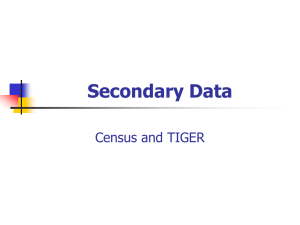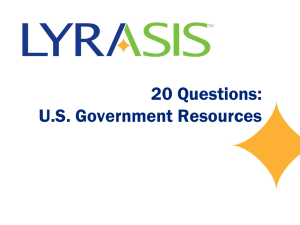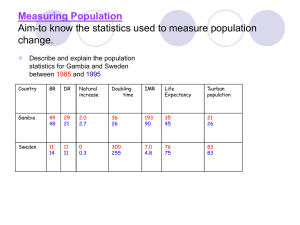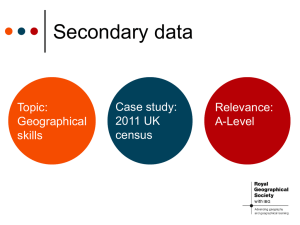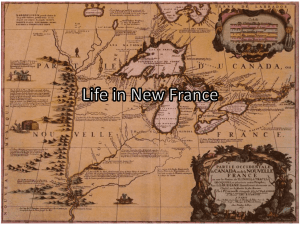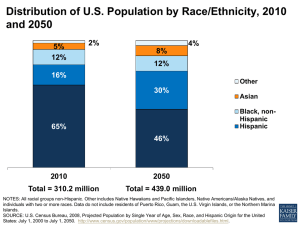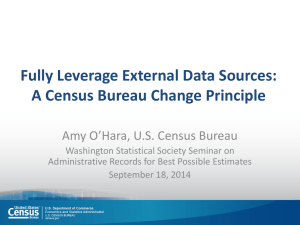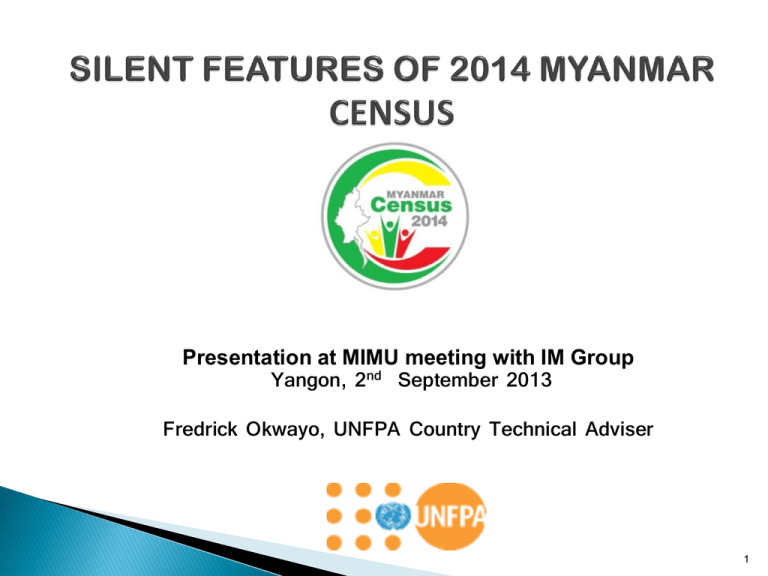
Presentation at MIMU meeting with IM Group
Yangon, 2nd September 2013
Fredrick Okwayo, UNFPA Country Technical Adviser
1
Background
Results from Pilot Census
Key considerations
Data Release calendar
Methodology
Challenges
Maps
Your role in the census
Questions
2
•
Previous censuses in Burma
•
The 2014 Myanmar Census is historic
•
First real time statistical information
•
One time snap shot on the 29th March 2014
•
Supports transition process
•
Provide sampling frame for credible research
3
3
• Full coverage of the population, targets all people
and areas
• Legal Mandate
• Mandates DOP to conduct the census
• Protects data confidentiality and how to release data
• Outlines obligation and rights of the public
• Structures all the way to Ward and Village tract level
• Not regulated, conducted and checked by ITAB
4
• Subjected to strict monitoring and consultation
• Risk mitigation measures identified during
assessment and pilot census (political, logistical,
administrative and technical)
• Conducted a pilot census in 20 township and testing
the census in Rakhine IDP camps
• Large team of experts (political, communication,
mapping, data processing, overall management, etc.)
5
The census will be done on “de facto” basis
Census Night is Saturday 29th March 2014
Everybody within the borders of Myanmar on
Census Night will be counted
The Reference time is 00.00 hrs 30th March 2014
Data collection will continue for 12 days until
10th April
Method of enumeration is face-to-face
interview (canvasser method)
Who will be counted?
Everyone who spends the Census Night (the night of
29/30th March 2014) within Myanmar’s borders
Both Myanmar citizens and foreigners (exception are
Foreign embassy staff based in Myanmar)
All persons who spend the Census Night in a
household, whether members or visitors will be
counted in that household
Any person who died after the Census Night (but who
was alive on the Census Night);
7
9
Contents (41 questions)
Demographic characteristics (Age, sex,
religion, marital status, ethnic groups)
Disability, type of Identity Cards
Migration
Education
Labour Force
Fertility/Mortality
Type and conditions of housing unit
Household amenities, water, toilet, energy
Ownership of specific items by household
Household members abroad
Recent deaths in the households
Census Questionnaire (Eng)
Census Questionnaire (Myan)
Religion
Questions for all members
(Demographic Characteristics)
Ethnicity
Indicators:
Religion
Ethnicity
Note: Code list of 135 ethnic groups provided . If the answer is not in the
list, enumerator fill the “others” code and write the name of
ethnicity/nationality as given.
16
Table 2. Relationship by
Sex
Relationship
Sex
Total
40
35
Percent Percent Percent
30
Total
49,575
100
100
100
Head
11,296
22.8
36.9
10.9
20
Spouse
7,443
15
0.5
27.3
15
Child
Son/Daughterin-law
SonDaughterin-law
Parent/Parentin-law
18,463
37.2
39.6
35.2
10
3.2
3.3
3.1
5
0
1,596
37.2
4,095
8.3
8.8
7.8
1,016
2
1.1
2.9
Sibling
1,233
2.5
1.9
3
Grandparent
70
0.1
0.1
0.2
Other relative
2,262
4.6
4.4
4.7
Adopted child
87
0.2
0.2
0.2
Not relative
2,014
4.1
3.2
4.8
25
22.8
15
8.3
3.2
2
2.5
4.6
0.1
4.1
0.2
Sex by Read/write(Population age between 15 and 24
years
Sex
Read/write
Total
Yes
Percent No
Percent
Total
9,046
8,515
94.1
531
5.9
Male
3,921
3,706
94.5
215
5.5
Female 5,125
4,809
93.8
316
6.2
Sex by Read/write ( Population 5 years and above)
Sex
Read/write
Total
Yes
Percent
No
Percent
Total
45,549
39,063
85.8 6,486
14.2
Male
20,629
17,941
87 2,688
13
Female
24,920
21,122
84.8 3,798
15.2
Table 4. Religion by Sex
Religion
0.2
Sex
Total
Total
0.7
Percent
Percent
Percent
49,451
100
100
100
Buddhist 41,188
83.3
83.5
83.1
Christian 7,805
15.8
15.5
16.1
Islam
364
0.7
0.8
0.6
Hindu
82
0.2
0.2
0.2
Animist
9
*
*
*
Other
3
*
*
*
15.8
Buddhist
Christian
Islam
Hindu
83.3
Table 5. Identity card by Batch Urban/Rural
Identity card
Citizenship Scrutiny
Card
Associate Scrutiny
Citizenship Card
Naturalized Scrutiny
Citizenship Card
National Registration
Card
Temporary
Registration Card
Foreign Registration
Card
Foreign Passport
None of the above
Total
Total
Urban
Rural
33616
81.6
203
0.5
1.5 *
198
0.5
1
0.2
541
1.3
1.6
1.2
153
0.4
0.9
0.1
27
0.1
0.2 *
10 *
6469
15.7
83.9
80.4
None of the above
Foreign Passport
0.1
0
10.9
18.1
Foreign Registration Card
Temporary Registration…
Rural
Urabn
National Registration Card
Total
Naturalised Scrutiny…
Associate Scrutiny…
Citizenship Scrutiny Card
0
50
100
100
93.2
90
81.6
86.3
84.4
82.6
84.2
86.4
86.1
85.2
79.7
80
77.3
79.9
82.5
74.2
70
61.2
60
50
40
36.8
30
20
25.5
15.7
19.2
15.5
15.2
10
13.7
15.4
12.9
13.4
12
21.5
11.3
12.6
6.8
0
UNION
KACHIN
KAYAH
KAYIN
CHIN
SIGGINGTANINTAYI BAGO MAGWAYMANDALAY Mon
RAKHINE YANGON SHAN(E)
AYEYARWADY
Citizenship Scrutiny Card
None of the above
Preliminary Results: Population by sex and related
indicators at administrative level. 3 months after data
collection (July 2014);
Main Results: 11 months after data collection
(Feb/March 2015)
Frame for household based surveys – August 2014
Thematic Reports: Fertility, Mortality, Migration,
Population Projections, Education, gender, etc. from
November 2015 to Dec 2016
Dissemination of the results and further research
22
Technical and Institutional capacity
Building strong public confidence in the process
through outreach and advocacy
Ensuring census remains a strong statistical exercise
Accessibility to some parts of the country
Full participation of all people in the country
(political, administrative, logistical and technical risks)
23
The critical role of INGOs, NGOs, civil society and DPs
We need your support! Become a 2014 Census Partner!
By supporting the 2014 Census of Myanmar, your
organization will help your constituencies get the
services they deserve:
• The Census determines the distribution of
government funding to critical community
services such as the provision of doctors,
health centers, schools, teachers, roads,
electricity, services for disabled people,
political representation, etc…
• An incomplete count means that some
segments of society, often the ones that
need it most, will not receive the services
and funding they deserve.
•
•
•
•
Know census facts and share them
Create awareness among the staff,
communities, families and friends
Demystify misconceptions or myths about
the census, including journalists
Reassure the population of the
confidentiality/ secrecy of the census
process and results
Possible Actions
• Include information about the 2014 Census
in your newsletters, bulletins, and Web sites
• Help recruit community leaders from the
constituencies you work with to advocate for
the census in their communities
• Offer information sharing sessions, focal
group discussions, meetings with your
constituencies to spark conversations and
informed discussion on the importance of
the 2014 Census.
• Detailed information on the census is being
printed and will be shared soon.
Thank you and any
questions….

